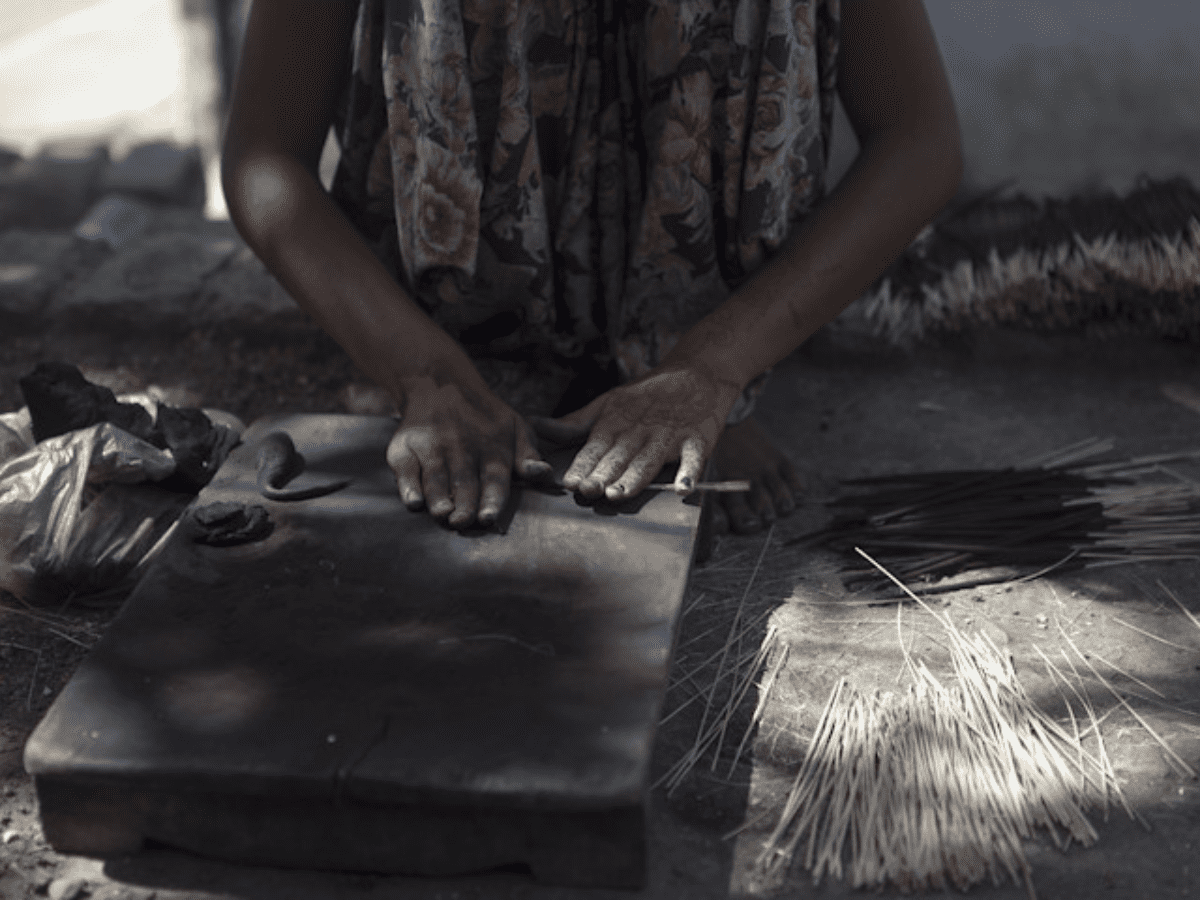
Hyderabad: While we burn incense sticks in our houses during important religious occasions, particularly during Ramzan for different reasons, we seldom ponder upon the toiling task the workers perform to make Agarbattis ie; incense sticks.
In the narrow lanes of the Amannagar slum of Tallabkatta – two kilometres away – from Charminar, scores of women roll incense sticks (agarbatti). Sitting in dingy rooms sans any comfort of fans or air coolers, women and girls sit for anywhere between six to eight hours a day and roll incense sticks. Summer, rains or cold – their run continues.
“The powder (dust), bamboo strip and paste are provided by the factory owner. Our job is to mix the items and roll the agarbatti using the ingredients provided. On any day we make around 10 – 12 kilograms of incense sticks,” says Zainab, a woman from Amannnagar who has been in the trade for around 10 years.
She is not the only woman practising this vocation; hundreds of others have spent a good part of their life in it.
Noorjahan, another woman, has been into incense sticks for nearly two decades. “I started when the wages were Rs 3 for a kilogram. Now we are paid Rs 16 a kilogram. I end up earning around Rs 200 a day,” said the woman.
The work is quite strenuous and exposure to dust often triggers health issues. “We sit in one place for almost six to eight hours. If we take breaks then we are unable to meet our target, which means a loss of wages. Can’t help but have to do it,” said Amena, another woman.
In a few families, all the women and girls practice it. “It is an indoor job. Our men don’t want us to go and wash utensils in houses or work at shops. So we prefer this work, which helps us supplement the family income,” said Ghousia, a mother of three kids. Her husband works at a hotel and earns Rs 300 a day.
There is a huge profit margin for the owner of the factories. “Owners pay us depending upon the work we do. They add scent to it and after drying the incense sticks under the sun, pack it in boxes and send it to wholesalers who sell it in the market. How much they earn, we don’t know but our wages are hiked by a rupee or two every two years, that’s it,” remarked another woman.
The women are illiterate or have just basic formal education. “Parents did not encourage us to take up education due to financial problems. So I work along with my mother and sister. I will be with them until my marriage and afterwards it’s up to my in-laws to allow me to work or not,” said Nasreen, another woman.
Often the workers fall ill and develop allergies because they don’t use protective gear. “When we fall ill we go to the nearby government hospital and take medicine. We take a break from work for a day or two and return. No other option for us, no government benefits, no NGO to support or help us,” said Fatima, a woman who has been in this vocation for at least 35 years.
There are several agarbatti-making units in Amannnagar, Tallabkatta, Hassannagar, Yakutpura, Vattepally and other slums where entrepreneurs find cheap labour easily.

